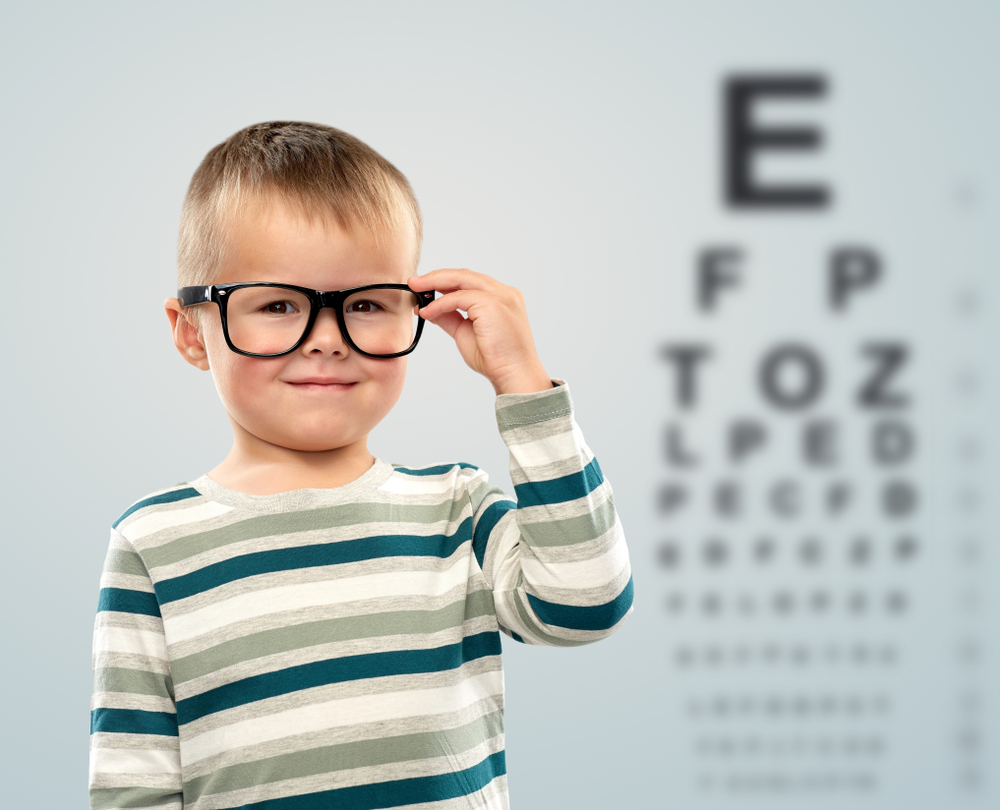
Vision is a critical sense that allows children to navigate and engage with the world around them. When a child's vision is impaired, it can significantly impact their ability to learn, concentrate, and perform well in school. From reading textbooks and seeing the board to hand-eye coordination and spatial awareness, vision is essential for a child's academic development.
Children with untreated vision problems may struggle with tasks such as reading, writing, and even physical activities like sports. This can lead to frustration, low self-esteem, and ultimately, poor academic performance. By understanding the link between vision and academic success, you can take proactive steps to ensure your child's vision is supported and their educational journey is smooth.
Common Eye Conditions in Children
Children can experience a variety of eye conditions that can impact their academic performance. Some of the most common eye conditions in children include:
Refractive Errors: This includes nearsightedness (myopia), farsightedness (hyperopia), and astigmatism, which can make it difficult for children to see clearly at different distances.
Amblyopia (Lazy Eye): This condition occurs when one eye develops poorer vision than the other, often due to a difference in refractive error or a misalignment of the eyes.
Strabismus (Eye Misalignment): This is a condition where the eyes are not properly aligned, causing the eyes to cross or drift outward.
Convergence Insufficiency: This is a problem with the eye muscles that make it difficult for the eyes to work together, leading to eye strain, headaches, and difficulty with reading and close-up work.
Color Vision Deficiencies: Some children may have difficulty distinguishing certain colors, which can impact their ability to read maps, charts, and other visual materials.
Early detection and treatment of these eye conditions are crucial for ensuring your child's academic success.
The Link Between Vision Problems and Academic Performance
When a child experiences vision problems, it can have a direct impact on their academic performance. Children with untreated vision issues may struggle with the following:
Reading and Comprehension: Difficulty focusing on the text, tracking words, or understanding the content can make reading and comprehension a significant challenge.
Writing and Fine Motor Skills: Poor hand-eye coordination and difficulty with visual-motor integration can make it hard for children to write legibly and perform tasks that require fine motor skills.
Math and Spatial Awareness: Challenges with depth perception, spatial awareness, and visual processing can make it difficult for children to excel in math and other subjects that require these skills.
Attention and Concentration: Eye strain, headaches, and other vision-related issues can cause children to struggle with maintaining focus and attention in the classroom.
By addressing vision problems early on, you can help your child overcome these academic hurdles and set them up for success.
The Role of Pediatric Eye Exams for Early Diagnosis and Treatment
Regular pediatric eye exams are crucial for the early detection and treatment of vision problems. It is recommended that children have their first comprehensive eye exam at 6 months of age, followed by additional exams at 3 years old, 5 years old, and then annually thereafter.
During these exams, optometrists can identify any vision issues and provide the necessary treatment. If your child is diagnosed with a refractive error or other vision problem, corrective lenses, such as eyeglasses or contact lenses, can play a vital role in supporting their academic success. Properly fitted and prescribed lenses can:
Improve Visual Acuity: Correct refractive errors and allow children to see clearly, making it easier to read, write, and engage with visual materials.
Reduce Eye Strain: Alleviate symptoms like headaches, fatigue, and blurred vision, which can improve concentration and focus in the classroom.
Enhance Confidence: Providing children with clear vision can boost their self-esteem and confidence, positively impacting their academic performance.
Schedule Your Child’s Back-to-School Eye Exam with Lauren Alexander Optical & Katy Vision Source Today
Your child's vision is a critical component of their academic success. By understanding the link between vision and educational performance, and taking proactive steps to address any vision problems, you can empower your child to thrive in the classroom and reach their full potential.
If you're concerned about your child's vision or would like to schedule a comprehensive eye exam, contact Lauren Alexander Optical & Katy Vision Source. We are dedicated to providing the highest quality vision care and ensuring your child's eyes are healthy and functioning at their best for academic success. Visit our office in Katy, Texas, or call (281) 693-1616. For Lauren Alexander Optical, visit our office in Spring, Texas, or call (713) 357-9949 to book an appointment today.






